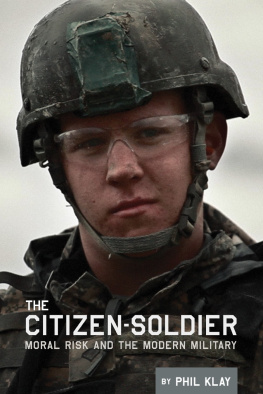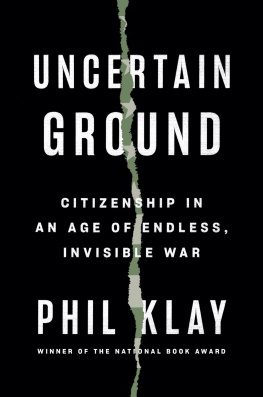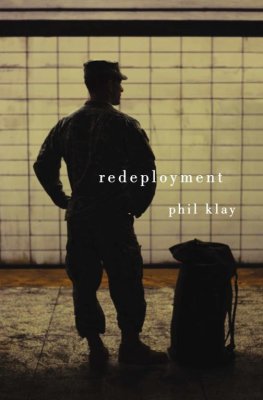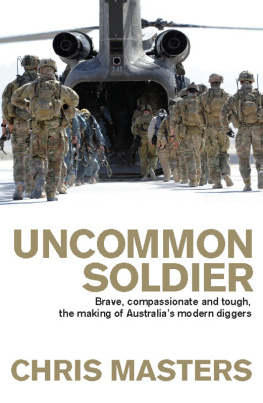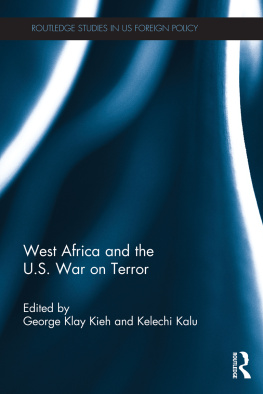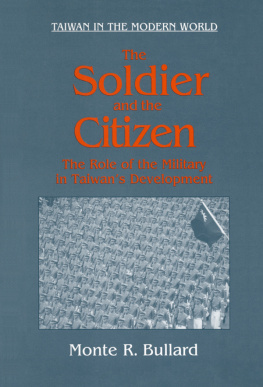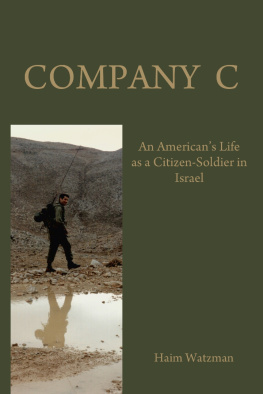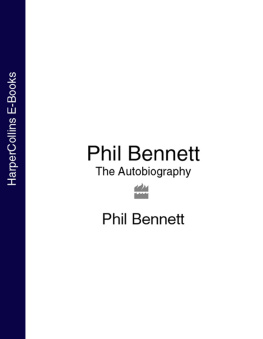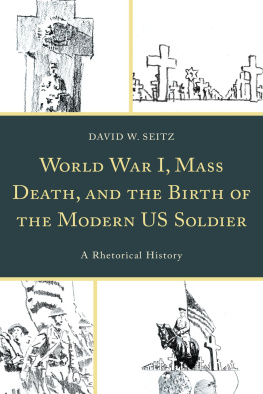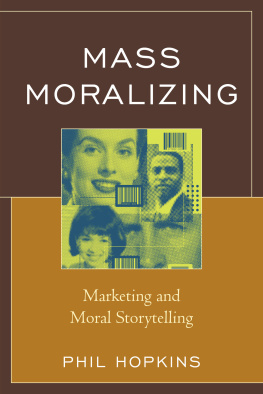T HE C ITIZEN -S OLDIER
T HE RUMOR WAS hed killed an Iraqi soldier with his bare hands. Or maybe bashed his head in with a radio. Something to that effect. Either way, during inspections at Officer Candidates School, the Marine Corps version of boot camp for officers, he was the Sergeant Instructor who asked the hardest, the craziest questions. No softballs. No, Whos the Old Man of the Marine Corps? or Whats your first general order? The first time he paced down the squad bay, all of us at attention in front of our racks, he grilled the would-be infantry guys with, Would it bother you, ordering men into an assault where you know some will die? and the would-be pilots with, Do you think you could drop a bomb on an enemy target, knowing you might also kill women and kids?
When he got to me, down at the end, he unloaded one of his more involved hypotheticals. All right candidate. Say you think theres an insurgent in a house and you call in air support, but then when you walk through the rubble theres no insurgents, just this dead Iraqi civilian with his brains spilling out of his head, his legs still twitching and a little Iraqi kid at his side asking you why his father wont get up. So. What are you going to tell that Iraqi kid?
Amid all the playacting of OCSscreaming Kill! with every movement during training exercises, singing cadences about how tough we are, about how much we relish violencethis felt like a valuable corrective. In his own way, that Sergeant Instructor was trying to clue us in to something few people give enough thought to when they sign up: joining the Marine Corps isnt just about exposing yourself to the trials and risks of combatits also about exposing yourself to moral risk.
I never had to explain to an Iraqi child that Id killed his father. As a public affairs officer, working with the media and running an office of Marine journalists, I was never even in combat. And my service in Iraq was during a time when things seemed to be getting better. But that period was just one small part of the disastrous war I chose to have a stake in. We all volunteered, a friend of mine and a five-tour Marine veteran, Elliot Ackerman, said to me once. I chose it and I kept choosing it. Theres a sort of sadness associated with that.
As a former Marine, Ive watched the unraveling of Iraq with a sense of grief, rage, and guilt. As an American citizen, Ive felt the same, though when I try to trace the precise lines of responsibility of a civilian versus a veteran, I get all tangled up. The military ethicist Martin Cook claims there is an implicit moral contract between the nation and its soldiers, which seems straightforward, but as the mission of the military has morphed and changed, its hard to see what that contract consists of. A decade after I joined the Marines, Im left wondering what obligations I incurred as a result of that choice, and what obligations I share with the rest of my country toward our wars and to the men and women who fight them. What, precisely, was the bargain that I struck when I raised my hand and swore to defend my country against all enemies, foreign and domestic?
Grand Causes
It was somewhat surprising (to me, anyway, and certainly to my parents) that I wound up in the Marines. I wasnt from a military family. My father had served in the Peace Corps, my mother was working in international medical development. If youd asked me what I wanted to do, post-college, I would have told you I wanted to become a career diplomat, like my maternal grandfather. I had no interest in going to war.
Operation Desert Storm was the first major world event to make an impression on methough to my seven-year-old self the news coverage showing grainy videos of smart bombs unerringly finding their targets made those hits seem less a victory of soldiers than a triumph of technology. The murky, muddy conflicts in Mogadishu and the Balkans registered only vaguely. War, to my mind, meant World War II, or Vietnam. The first I thought of as an epic success, the second as a horrific failure, but both were conflicts capable of capturing the attention of our whole society. Not something struggling for air-time against a presidential sex scandal.
So I didnt get my ideas about war from the news, from the wars actually being fought during my teenage years. I got my ideas from books.
Reading novels like Joseph Hellers Catch-22 , or Tim OBriens The Things They Carried, I learned to see war as pointless suffering, absurdity, a spectacle of mans inhumanity to man. Yet narrative nonfiction told me something different, particularly the narrative nonfiction about World War II, a genre really getting off the ground in the late-90s and early aughts. Perhaps this was a belated result of the Gulf War, during which the military seemed to have shaken off its post-Vietnam malaise and shown that, yes, goddamn it, we can win something, and win it good. Books like Stephen Ambroses Band of Brothers and Tom Brokaws The Greatest Generation went hand-in-hand with movies like Saving Private Ryan to present a vision of remarkable heroism in a world that desperately needed it.
In short, my novels and my histories were sending very mixed signals. War was either pointless hell, or it was the shining example of American exceptionalism. In middle-school, Id read Ambroses Citizen Soldiers , about the European Theater in World War II. More than anything else, it was the title that stayed with me, the notion of service in a grand cause as the extension of citizenship. I never bothered to consider that the mix of draftees and volunteers who served in World War II wasnt so different from the mix of draftees and volunteers who served in Vietnam, or that the atrocities committed in that war were no less horrific than those committed in Vietnam, though no one was likely to write a best-selling book about Vietnam entitled Citizen Soldiers . The title appealed to me. Deeply. But I didnt see any grand causes in the 1990s, just a series of messy, limited engagements. Of course, in the history of American warfare, from the Indian Wars to the Philippines to the Banana Wars, it was the grand causes that were the anomalies, not the brushfire wars at the edge of empire.
Then 9/11 happened. We all have our stories of where we were that day. Mine is that I was in the woods, hiking the Appalachian Trail. As my little group of hikers scrambled over the rough paths we kept running into people telling stories of planes hitting the World Trade Center. It sounded preposterous, the sort of rumor that could easily spread in an isolated place, in the days before everybody had a smartphone. But we kept hearing the story, in ever more detail, until it became clearparticularly for those of us from New Yorkthat we had to leave the woods.
I cant say that I joined the military because of 9/11. Not exactly. By the time I got around to it the main U.S. military effort had shifted to Iraq, a war Id supported though one which I never associated with al-Qaida or Osama bin Laden. But without 9/11, we might not have been at war there, and if we hadnt been at war, I wouldnt have joined.
It was a strange time to make the decision, or at least, it seemed strange to many of my classmates and professors. I raised my hand and swore my oath of office on May 11, 2005. It was a year and a half after Saddam Husseins capture. The weapons of mass destruction had not been found. The insurgency was growing. It wasnt just the wisdom of the invasion that was in doubt, but also the competence of the policymakers. Then-Secretary of Defense Donald Rumsfeld had been proven wrong about almost every major post-invasion decision, from troop levels to post-war reconstruction funds. Anybody paying close attention could tell that Iraq was spiraling into chaos, and the once jubilant public mood about our involvement in the war, with over 70 percent of Americans in 2003 nodding along in approval, was souring. But the potential for failure, and the horrific cost in terms of human lives that failure would entail, only underscored for me why I should do my part. This was my grand cause, my test of citizenship.


